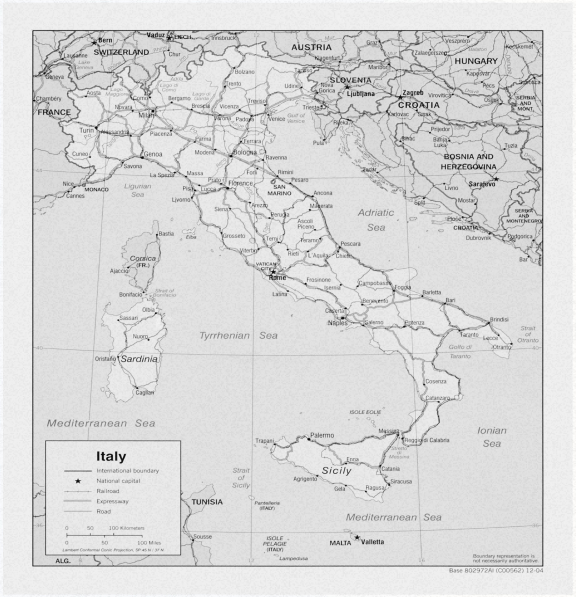
Market Spotlight:
Italy

Factum Scale:
-
Italy is ranked 58th out of 190 countries for overall ease of doing business, performing below the EU average (World Bank’s Doing Business).
-
Italy is ranked 98th out of 190 for starting a business. Starting a business in Italy can take less time (average of 13 days) but it costs more than the EU average (World Bank’s Doing Business).
-
Italy’s open economy encourages foreign investors– The country has implemented significant reforms to gain investor trust and confidence. An example involves the Italian Trade Agency creating a “one-stop shop” for pre-investment information, business set-up support, and ongoing after-care for incentives and contracts (Wolters Kluwer).
-
The Italian market can sometimes deter entrepreneurs because bureaucracy at all levels is notorious for delays and inefficiencies, but in recent years there have been efforts to streamline bureaucratic processes (International Living).
Tariffs & Regulations
Factum Scale:
-
Italy’s regulatory environment is complex and at times lacks the transparency found in other developed economies. While EU-wide regulations often apply, Italian laws may go beyond the basic EU requirements (ITA).
-
As a member of the European Union (EU), Italy adheres to the EU’s Common External Tariff, which applies to goods imported from non-EU countries allowing for the free movement of goods within the EU.
-
Italy is a part of many other global trade organizations including North Atlantic Treaty Organization (NATO), the Organization for Economic Cooperation and Development (OECD), Group of Eight (G8), the World Trade Organization (WTO), and the Organization for Security and Cooperation in Europe (OSCE) (IPC).
Fluency in English
Factum Scale:
-
According to the EF English Proficiency Index, Italy is considered “moderately” proficient in English, ranking it 35th out of 113 globally and 26th out of 34 in Europe.
-
Italian is the language of business in Italy. While many Italians do speak English, expats should not assume that this is the case (Expat Arrivals).
-
Because business communication is often done in Italian it can be difficult for US businesses to navigate legal and regulatory requirements, negotiate contracts, and communicate effectively with local partners and clients, so it might be wise to have someone to translate (Teck Translations).
Society, Culture, and Business Etiquette
Factum Scale:
-
Punctuality is not a priority for Italians. It is not uncommon for people to arrive 10 to 15 minutes late for meetings, but for outsiders it is best to arrive on time or slightly early for meetings (CIBT Visas).
-
Greetings in business settings typically consist of a firm handshake with a warm smile and eye contact. Use formal titles when addressing others, signore (Mr) and signora (Mrs) and their surname, unless told otherwise.
-
As Italy is recognized as one of the fashion capitals of the world, business attire should be conservative, classy, and simple.
-
Building relationships is essential in Italy; Skipping straight into business and overlooking small talk can be seen as impolite.
-
Italy is home to one of the most famous cuisines in the world, so meals can be multi-hour affairs in both social and business settings and they are crucial for fostering relationships. It is important to be mindful of standard Italian table manners such as waiting for the host to start eating and avoiding placing your elbows on the table.
-
In most cases it is the higher-ups in Italian businesses who hold the decision-making power, and lower-ranking individuals are generally uninvolved in major decision-making. Titles and seniority hold a significant amount of weight.
Economic Stability
Factum Scale:
-
Italy is ranked the 8th largest economy in the world and 3rd largest in the EU (ITA).
-
According to the Heritage Index of Economic Freedom, Italy was ranked the 69th freest country in 2023.
-
Despite attempts at reform by the Italian government, movement toward greater economic freedom has been relatively stagnant.
-
As it is positioned in the center of the Mediterranean Sea, Italy gives businesses a strategic gateway to consumers across the European Union, Northern Africa and the Middle East. It is also a primary hub that links southern, central and eastern Europe (Wolters Kluwer).
-
A total of 432 million tons of goods and 1 billion people move through Italy’s 40 major ports and 42 airports. As a member of the EU, businesses in Italy have duty-free access to over 50 million consumers in over 30 national markets within the European Economic Area (Wolters Kluwer).
-
Italy faces many economic challenges, like slow growth rates and one of the highest public debt levels in the world. Issues such as labor market rigidity, bureaucratic inefficiency, and a complex tax system contribute to these challenges. Addressing these issues is critical for sustainable economic growth (Focus Economics).
Labor
Factum Scale:
-
Labor market rigidities discourage dynamic job growth, and the informal labor market accounts for a large proportion of employment (Heritage)
-
The labor force participation rate in Italy is 66.9% (Trading Economics)
-
Italy’s labor laws are slanted in favor of the employee. Local employment tribunals tend to side with employees in dismissal, premature retirement, or redundancy cases (International Living).
-
Italy is below the eurozone average for hourly labor costs. Data from its National Statistics (2023) unit put the cost of an hour of labor in Italy at €29.80 on average, compared to a eurozone average of €31.80 (Eurostat).
-
Youth unemployment rate in Italy is on the higher side, due to exclusive unemployment benefits and with inflexible labor market policy.
-
Main industries include manufacturing, tourism, and agriculture (Britannica). Italy is the largest producer of luxury goods in the world and it is one of their main industries.
Business Structures
-
Limited Liability Company (Società a Responsabilità Limitata, S.r.l.): This is the most common business structure for small to medium-sized enterprises. Shareholders have limited liability, meaning they are only responsible for their investment.
-
Joint Stock Company (Società per Azioni, S.p.A.): Typically used by larger companies or those planning to go public. Shareholders have limited liability, and shares can be traded on the stock market. Being an S.p.A requires a minimum share capital of €50,000.
-
General Partnership (Società in Nome Collettivo, S.n.c.): Suitable for small businesses with multiple partners. All partners have unlimited liability, meaning personal assets can be used to cover business debts. No minimum capital requirement.
-
Limited Partnership (Società in Accomandita Semplice, S.a.s.): This combines elements of S.n.c. and S.r.l. Has general partners with unlimited liability and limited partners with liability limited to their investment. No minimum capital requirement. General partners manage the company, while limited partners are investors.
-
Sole Proprietorship (Impresa Individuale): Simplest form of business, owned and operated by one individual. Owner has unlimited liability. No minimum capital requirement. Easy to establish and manage but carries personal risk for the owner.
-
Branch Office (Sede Secondaria): Extension of a foreign company operating in Italy. Not a separate legal entity; the parent company is fully liable for its operations. Must appoint a legal representative in Italy.
-
Representative Office (Ufficio di Rappresentanza) Used for market research, promotion, or other non-commercial activities. Cannot engage in direct commercial operations or generate revenue. Not subject to corporate taxes but must register with Italian authorities.
Business Landscape
-
Approximately 99% of Italy’s business market is family-owned small and medium sized firms who produce 68% of Italy’s GDP. Much of this activity is located in the northern part of the country in Milan and Venice, who are responsible for almost half of Italy’s total income (SDSU).
-
Within the top 10 largest companies by revenue in Italy, they vary in industry that they operate in but include energy, insurance, banking, and telecommunications. These companies play a significant role in Italy’s business landscape (Economic Activity).
-
Italy is and will remain an attractive destination for foreign investment, with one of the largest markets in the EU, a diversified economy, and a skilled workforce (US Department of State).
Notable Institutions
-
Ministry of Economy and Finance: MEF carries out the tasks and responsibilities of the State in the fields of economic policy, financial policy, budgeting, and tax policies. Additionally, it carries out all activities related to the coordination of public spending and its oversight, planning of public investments, monitoring and oversight of public financial management, public debt management, and of State stockholdings.
-
Agenzia delle Entrate: The Agenzia delle Entrate is mainly responsible for collecting tax revenues, providing services and assistance to taxpayers and carrying out assessment and inspections aimed at countering tax evasion.
-
Foreign Investments Attraction Department (a dedicated unit of ITA): responsible for facilitating the establishment and the development of foreign companies in Italy.The Department’s main activities focus on promoting business opportunities, helping foreign investors to establish or expand their operations, and supporting investors throughout the investment life cycle.


